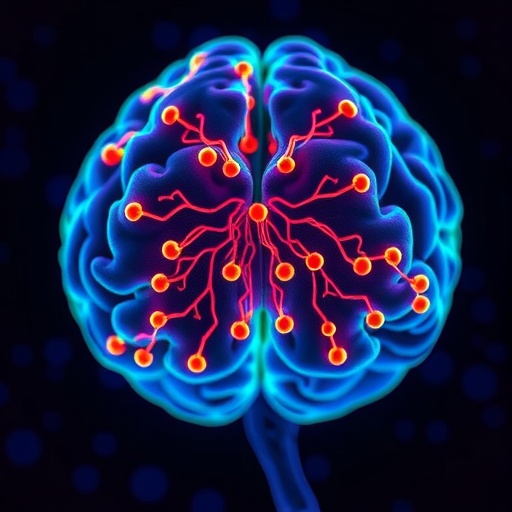In a groundbreaking study published in Annals of Biomedical Engineering, researchers have unveiled important insights into the mechanisms governing drug permeability across the blood-brain barrier (BBB). Utilizing cholesterol depletion techniques, specifically through the application of U18666A and Methyl-β Cyclodextrin, the team led by Moiz et al. investigated how such modifications could enhance the transport of small molecules across the brain microvascular endothelial cells, a vital consideration in developing effective therapeutics for neurological disorders.
The blood-brain barrier serves as a selective barrier that protects the brain from potentially harmful substances while maintaining the necessary homeostasis for neural functioning. However, this same barrier complicates the delivery of therapeutics to treat a plethora of brain-related conditions, ranging from Alzheimer’s disease to traumatic brain injury. Finding ways to modulate this barrier’s integrity while still ensuring brain protection has long been a critical area of focus in biomedical research.
The core of the study lies in the involvement of cholesterol within the cellular membranes of brain microvascular endothelial cells, which form the primary structural component of the BBB. Cholesterol is known to play a pivotal role in maintaining cell membrane fluidity and integrity. However, the researchers hypothesized that reducing cholesterol levels could potentially relax the tight junctions between these endothelial cells, thereby facilitating increased permeability to small therapeutic agents.
The experimental approach employed involved treating human brain microvascular endothelial cells with U18666A and Methyl-β Cyclodextrin, which are known for their ability to deplete cellular cholesterol. The results demonstrated a marked increase in the permeability of these cells to small molecules, culminating in a significant enhancement of drug transport across the BBB. This finding holds profound implications for pharmaceutical strategies aimed at improving drug delivery systems, particularly for treatments targeting neurological conditions which have been notoriously difficult to penetrate through the BBB.
In the context of neuropharmacology, the ability to selectively modulate BBB permeability could lead to advancements in treating diseases that currently lack effective therapeutic interventions. For instance, Alzheimer’s disease, recognized for its devastating cognitive decline, often limits the efficacy of drug therapies due to insufficient delivery across the BBB. The findings from Moiz et al.’s research suggest that by employing cholesterol-depleting agents, researchers may develop innovative approaches to enhance the delivery of existing drugs or potentially new therapeutic modalities designed for targeting neurodegeneration.
Moreover, the implications of this work extend beyond neurological conditions. Given the critical role of the BBB in protecting the central nervous system, the controlled manipulation of its permeability might also advance the treatment of conditions such as brain tumors, where accumulation of therapeutic agents is crucial for effective localized treatment without considerable systemic side effects. The research team has opened doors to explore novel drug formulations that could harness this newfound ability to traverse the BBB more effectively.
In addition to interrogating the mechanics of cholesterol depletion, the study delves into the specific cellular responses triggered by reduced cholesterol levels. These reactions could include alterations in signaling pathways and changes in expression profiles of transporters that might affect how small molecules are handled by the endothelial cells. Such findings not only deepen the understanding of the physiological role of cholesterol in endothelial cell function but also highlight potential avenues for future investigations to optimize drug formulations and delivery mechanisms.
Given the emerging landscape of drug development as it relates to neurological applications, the results of this study underscore the essentiality of interdisciplinary collaboration in advancing biomedical research. Biochemists, pharmacologists, and molecular biologists must work in conjunction to refine the therapeutic processes that influence BBB permeability and the subsequent delivery of treatment options.
As medical science endeavors to combat the myriad of challenges posed by complex neurological disorders, this research points toward innovative strategies that could fundamentally transform the landscape of drug delivery systems. Future studies will build upon the groundwork laid by Moiz et al., examining the long-term implications of cholesterol modulation on brain health and cognition. Additionally, understanding the risks associated with altered BBB permeability will be crucial for ensuring the safe and effective application of these techniques in clinical settings.
Furthermore, as researchers race to translate these laboratory findings into clinical applications, it is paramount that the pharmacodynamics of drugs are accounted for when considering their journey through the brain’s protective barrier. The nuances of how small molecules interact with both the modified endothelial cells and the surrounding brain tissue will shape the value of such strategies.
This research stands as a testament to the potential of fundamental biological principles to impact clinical practices significantly. As more data accumulates, the role of cholesterol within the BBB may be reimagined, leading to cutting-edge techniques that challenge the status quo of pharmacotherapy in treating central nervous system disorders.
In conclusion, Moiz et al.’s exploration into the influence of cholesterol depletion provides an exciting perspective on unlocking the mysteries of BBB permeability. With the ability to potentially revolutionize drug delivery, this study paves the way for myriad future investigations, highlighting an area of research that has the potential to save countless lives by making effective treatments for brain diseases a tangible reality.
Subject of Research: Cholesterol depletion and its effects on small molecule permeability across brain microvascular endothelial cells.
Article Title: Cholesterol Depletion with U18666A and Methyl-β Cyclodextrin Increased Small Molecule Permeability Across Brain Microvascular Endothelial Cells.
Article References: Moiz, B., Vargas, V.A., Brandon, K.D. et al. Cholesterol Depletion with U18666A and Methyl-β Cyclodextrin Increased Small Molecule Permeability Across Brain Microvascular Endothelial Cells. Ann Biomed Eng (2025). https://doi.org/10.1007/s10439-025-03841-9
Image Credits: AI Generated
DOI:
Keywords: Blood-brain barrier, cholesterol depletion, U18666A, Methyl-β Cyclodextrin, drug delivery, small molecules, neuropharmacology.
Tags: Annals of Biomedical Engineering studyblood-brain barrier permeabilitybrain microvascular endothelial cellscholesterol depletion effectscholesterol role in cell membranesdrug delivery to the brainenhancing small molecule transportMethyl-β Cyclodextrin effectsneurological disorder therapeuticstherapeutic strategies for brain diseasestight junction modulation in endothelial cellsU18666A application in research





